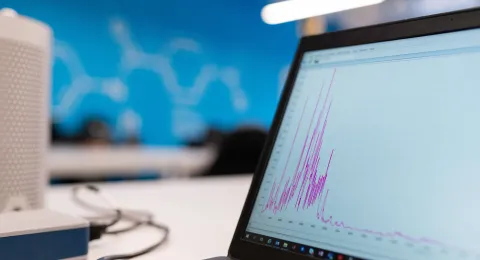
Selling news has become vastly difficult in the digital reality we’re living in. News has become a so-called public good: it circulates freely and doesn't wear out in use. The inefficiency of paywalls to protect the exclusivity of information has sent the commercial value of news into a downward spiral.
Nonetheless, Atte Jääskeläinen’s dissertation shows that news can be produced sustainably even at a loss if the news agency creates adjacent products or services to branch out to new markets. Jääskeläinen bases his observation on examples set by the most successful European news agencies.
"News provides its producer – the editorial staff – credibility and perceived value that help build a unique competitive edge in new product markets. Resources used to produce news can also offer opportunities for other revenues at little added cost," Jääskeläinen explains.
In a digital platform business, free or underpriced news can attract customers and boost the growth of the platform. An established actor in the field is not necessarily at the losing end if it is able to use its competitive edge to build its platform business wisely.
"Surprisingly, if an agency sinks or swims depends largely on its people. Financial and business models can go through similar changes around the world, but in some countries, businesses are stricken by crisis, whereas in others, they thrive. Never underestimate the ability of entrepreneurially-minded management to find new, profitable solutions in difficult circumstances."
Jääskeläinen points out that leading actors in the field are gaining even more ground, but they are pressing forward in a dwindling market.
"The greatest winners are American platform economy titans that have taken over most of the advertisement market. Those ad dollars and euros are absent from the financing models of news agencies."
Following the news is considered a civic duty
According to the dissertation, people feel it’s their civic duty to keep abreast of current events, and in a digital environment, that comes with a strong social value dimension.
"Respondents ranked news value surprisingly high – practically superior to all other values. To the respondents, fulfilling the traditional criteria of news value was the most important issue: a news item should be useful and informative, promote social justice, build the reader's identity and make the reader proud," says Jääskeläinen.
Relaxing and uplifting news has its own distinct significance that’s distinguishable from conventional news value.
"Let's not forget the emotional value of news. Emotions can be positive or negative, and both are valuable."
Interestingly, respondents often experienced readers’ comments as irritating and did not appreciate emotional outbursts in them. However, respondents regarded the sharing of emotions as the strongest positive emotional dimension of news. Jääskeläinen interprets it as empathy.
"In digital services, comments by news consumers even decreased the news value for the average reader. Therefore, digital news services need to plan and analyse carefully what type of reader engagement actually adds value. That helps sidestep the user-perceived decrease in value even though the possibility to comment is, in itself, considered valuable."
More information:
Atte Jääskeläinen
+358 40 545 4782
Atte Jääskeläinen, Master of Laws, will defend his doctoral dissertation in the field of Economics and Business Administration at LUT on 24th of November at noon, in Auditorium 1316. His dissertation is titled Business Model Innovation Opportunities When News Has Become a Public Good. Professor Mikko Villi, University of Jyväskylä, Finland, will act as opponent. Professor Paavo Ritala of LUT University will act as custos.





